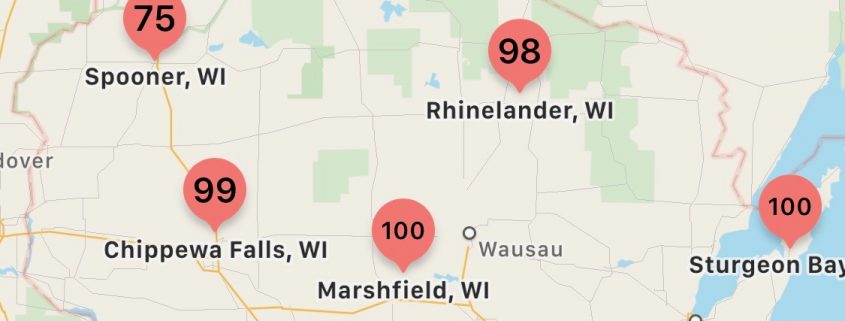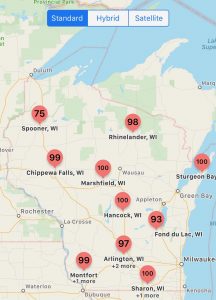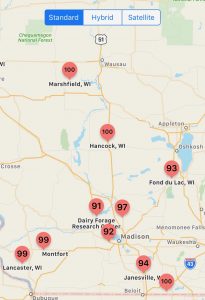Wisconsin Tar Spot Update – June 25, 2019
Damon Smith, Extension Field Crops Pathologist, Department of Plant Pathology, University of Wisconsin-Madison
Figure 1 shows the calculated risk from Tarspotter for June 25, 2019, for various locations in Wisconsin. Figure 2 provides a zoomed view for southern and south-central Wisconsin. As you can see, the present risk is very high for tar spot development in all locations examined. This is due to the fact that the weather continues to be relatively cool and wet for the past 30 days across the entire state. Tar spot is favored by persistent temperatures between 60 and 70 F and high relative humidity averaging above 75% for a 30-day period. We have been right in the zone for conducive conditions for this disease.
The Recommendation
While weather continues to be conducive for tar spot, evaluate the likelihood that tar spot might develop early in your field. Remember, if you have no history of the disease, then the likelihood of local inoculum being present is low. Saving the fungicide application for later in the season might be a better option. If you have a history and you know you have a susceptible hybrid coupled with a no-till situation, then the risk is higher and you need to evaluate the economics of doing an application of fungicide as early as V6. Remember, if you do a V6-V8 application of fungicide, conditions could stay conducive later in the season for tar spot. Those early applications will “burn out” by the time the tasseling period rolls around. So if you do put a fungicide spray on at V6, you might have to come back at VT with another application to protect plants during the reproductive phase, should we stay in favorable conditions for tar spot. Keep an eye on the weather and keep scouting!
More Tar Spot Information







